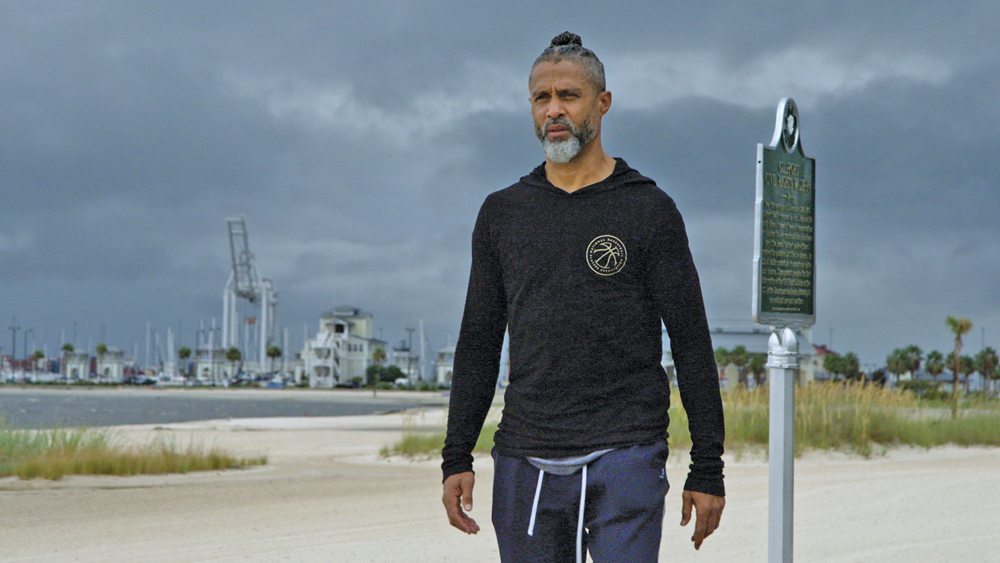A forum at Howard University Saturday will feature former NBA standout Mahmoud Abdul-Rauf and explore his journey to social activism.
The event, entitled “Time To Stand Up” at the university’s Blackburn Center (1 to 6 p.m.), comes a day after Friday’s May 19 birthday of Malcolm X. The purpose is to engage and celebrate those who follow in the tradition of the great civil and human rights leader, also known as Al Hajj Malik Al Shabazz, in terms of activism and standing up for truth and justice in America.
It also comes a week after U. S. President Joe Biden delivered the school’s commencement address where he singled out “white supremacy . . . the single most dangerous terrorist threat in our homeland.”
The line-up at Howard University
Joining Rauf in a panel discussion, followed by book signings and a reception are Dr. Greg Carr, Chair of the Department of Afro-American studies at Howard, Human Rights activist and Editor and Chief of Muslim Matters.org, Hena Zuberi, ESPN Andscape Senior Writer, Jerry Bembry, local Washington, DC TV anchor, author and Jackson State grad, Wisdom Martin, DC Educator and community activist Imani Abdullah and human rights advocate and Aafia Foundation Inc. President and COO, Al-Hajj Mauri Saalakhan.
The panel will explore the intersection of sports, truth, politics, social justice and advocacy in today’s world. It will be followed by book signing and sales by Abdul-Rauf and other authors on the panel. The event is free and open to the public and will include silent auctions of basketballs signed by Abdul-Rauf. A free meal will also be served.
Abdul-Rauf featured in documentary and autobiography
Abdul-Rauf, the former Chris Jackson, is the subject of the recent Showtime documentary “Stand”. It premiered in February and is now streamed on the premium TV network. The 107-minute documentary is described as a “raw and unflinching examination of the courageous life” of the basketball star and social activist.

Rauf also published his autobiography in October 2022 entitled, “In the Blink of An Eye.” Like the documentary, the book “recounts the twists, turns, trials and triumphs of his life” that include overcoming poverty and experiences living with the debilitating disease, Tourette’s Syndrome.
Abdul-Rauf plunged into the national spotlight
At the center of both the documentary and the book is his conversion to Islam in 1991. The NBA eventually exiled him for praying — instead of standing and saluting the flag. It happened during the playing of the national anthem before games throughout the 1995—96 season. His stand resulted in death threats and the burning down of his home in Gulfport, Mississippi.
In that way, Rauf is a precursor to former standout quarterback Colin Kapernick. The NFL blackballed the former San Francisco and Denver quarterback after he kneeled during the national anthem at league games in 2016. He did it to protest police brutality and racial inequality in the United States.
Both Rauf and Kapernick, like Muhammad Ali, Bill Russell and others before them, are now credited with igniting a wave of social and political protests among athletes at all levels. Abdul-Rauf has appeared on a host of television and online forums over the past four months telling his story.
Kepernick’s company, Kapernick Publishing LLC, published Abdul-Rauf’s memoir. Abdul-Rauf will be on hand to sign books at Howard University.
On Mahmoud Abdul-Rauf

Abdul-Rauf, 52, was a 6-1 high-scoring and dynamic guard during his ten-year (1990-98, 2000-01) NBA career. He is often referred to as ‘Steph Curry before Steph Curry’ for his uncanny long-range shooting and scoring ability.
The former LSU standout averaged an NCAA-record 30.2 points per game en route to earning SEC Player of the Year and First-team all-American status as a freshman. He won both awards as a sophomore playing with future NBA stars Shaquille O’Neal and Stanley Roberts. Abdul-Rauf declared for the NBA Draft after his sophomore season.
Picked third overall in the 1990 NBA draft by the Denver Nuggets, he went on to distinguish himself as one of the league’s deadliest sharpshooters. His career was cut short when he decided to not stand for the national anthem as a sign of protest. He also called the flag of the United States a symbol of oppression.
